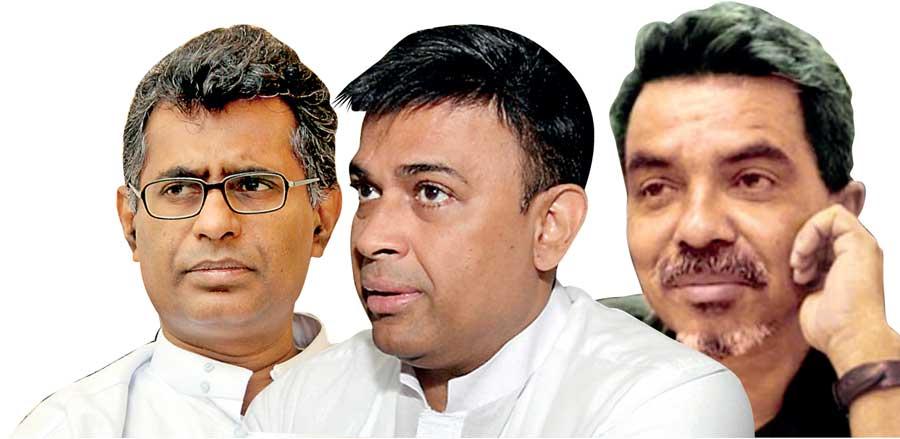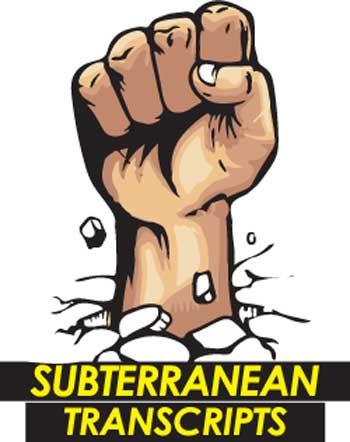Reply To:
Name - Reply Comment

Should public figures have private lives? This is probably a question that has been asked and answered countless times across time and space.
A related question would be ‘can public figures have private lives?’ Again an old question but one to which the ‘possible’ response has and is becoming increasingly muted courtesy technological innovation and surveillance complexities that are hard to notice and even harder to keep track of. 
It is not the case that people didn’t know about others’ lives prior to privacy-wrecking innovations. People talk. People notice. People put two and two together. People perceive. People draw conclusions. And if the perception are negative, all other factors being equal, it could cost the perceived.
Politics is an unforgiving vocation when it comes to privacy. This negative is known and politicians probably weigh the possible fallout against the potential benefits. Some have little to hide. Others who have skeletons, do their best to keep the cupboards locked and give the impression that there are no cupboards and no skeletons either. Some are careless. Some try to cover up and get away with it, either because they are clever or have the necessary leverage. Some make things worse by attempting to conceal the in-concealable. Regardless, in general, the old adage, ‘there’s no such thing as bad publicity,’ seems to have held.
The original question, then, is one that is as much about ‘the public’ as it is about politicians. The key word is ‘should’. Should or should not, that’s the question that needs to be considered. If the public and the private are for all intents and purposes inextricably entwined, do we consider them to be one and the same? Even if the lines are blurred, don’t we have a choice about which element to privilege in our considerations, either the private or the public? Let’s leave aside the despicable and utterly unethical nature of UNP parliamentarian Ranjan Ramanayake’s conscious practice of recording phone conversations. Let’s leave aside the childish after-the-fact defence of ‘exposing the system.’ Essentially, the content in leaked tapes could be divided into two broad categories: (a) that which is of relevance to the general public, since institutions, processes, representatives and officials are implicated, and (b) that which is strictly personal and has such relevance. There are no sanctions when it comes to the perusal of such things. To each his/her fascination, one could argue. The problem here is that there’s content that’s of serious public concern and content that’s not. The fascination with the latter could trivialize, displace and even make irrelevant the former.
We need to acknowledge, as flagged at the beginning, that ‘the sordid’ can have a bearing on the political, it can damage a personality and the party/coalition and even ideology to which the particular individual subscribes. That ‘political’ element however is of marginal worth when one considers the larger implication of the leaks.
The sexual dalliances of any individual is his/her business. If anyone is interested in what another person does behind closed doors that’s voyeurism. ‘Political voyeurism’ if one wants to call it that, is cheap. It can cause damage to the ‘seen’ but it doesn’t exactly cover the ‘seer’ in glory.

Take the sordid allegations that Prageeth Ekneligoda levelled at Patali Champika Ranawaka. Is it anyone’s business? Was it all true in the first place? Ranawaka didn’t care to respond at the time, but he cannot be faulted. Those who pen such notes crave response, after all. The reason why it all became serious was the fact that Ekneligoda disappeared or was disappeared. If he was indeed disappeared, then the immediate question is, ‘who had a motive?’ If the allegations were true, then Ranawaka had a motive, we could surmise: vengeance. However, to even name Ranawaka as a suspect, one has to be able to conclude that no one else had any motive to get rid of Ekneligoda, for vengeful or other reasons. The truth is that Ekneligoda made many enemies. He was, all things considered, a shady character and not only because keyhole-journalism was one of his passions (note: such journalism doesn’t require one to peep through keyholes or — a vivid imagination and a deranged mind are adequate ‘journalistic’ tools).
The problem with the Ekneligoda story and the politics that ensued is that the claims are not substantiated. Secondly these unfounded allegations had an extremely negative impact on Ranawaka’s family, including two daughters of schooling age. Thirdly, there is no evidence of Ranawaka having had anything to do with Ekneligoda.
So we have wild speculation. So we have speculation painted as fact. So we have ‘facts’ used to attack Ranawaka politically. As things stand it is highly unlikely that the Ekenligoda piece in and of itself could cause any significant damage to Ranawaka. Even if he did have something to do with Ekneligoda’s disappearance, it is not the truth of the narrative but the damage it has done to Ranawaka and his family that could have generated ‘motive.’ Lots of ‘ifs’ there, take note.
What is interesting here is selectivity. The allegations were made when Ranawaka was a minister during the second presidential term of Mahinda Rajapaksa. That camp didn’t utter a word then; some in the then Opposition did make some noice. The pohottuwa camp resurrected Ekneligoda’s article only AFTER Ranawaka moved to the Yahapalana Coalition. And those in the then Opposition who had made an issue of it went silent. Thus, it all came down to political loyalties (or otherwise). Not even the sordidness (which itself wasn’t proven and which in any case is certainly not a public-interest matter).
All this is what we expect from politicians in a political culture that’s childish at best and even then only sporadically and an absolute stink at worse. What of the public though? Why do the public mimic politician? Conversely, is it that the politician is a true representative in that he/she mirrors the priority-confusion and a preference for the sordid on the part of the represented?
The more serious issue pertaining to Ranawaka is the allegation that he fled the scene of an accident which involved a vehicle he was allegedly driving and the allegation that he deliberately misled the law enforcement agencies. Note, ‘allegations’. Remember, presumption of innocence. Such pertinent issues are seldom raised. It’s no different from the behaviour of those making a song and dance about ‘war crimes’. Allegations. Presumption of innocence. Such caveats are not flagged.
Still, this accident-issue is surely more important than the spawn of Ekneligoda’s warped mind. And yet, Ekneligoda wins the day. The personal elements in the leaked tapes win the day over everything that point to serious decay in the institutional and processional arrangement of the state.
Whose fault? Well, if we want to enjoy the ‘personal’ circus then let’s surrender ourselves to a long sojourn in a land where mismanagement, misappropriation, misrepresentation and other such vile creatures have a ball and rake in the bucks from the public kitty. Let’s not complain.